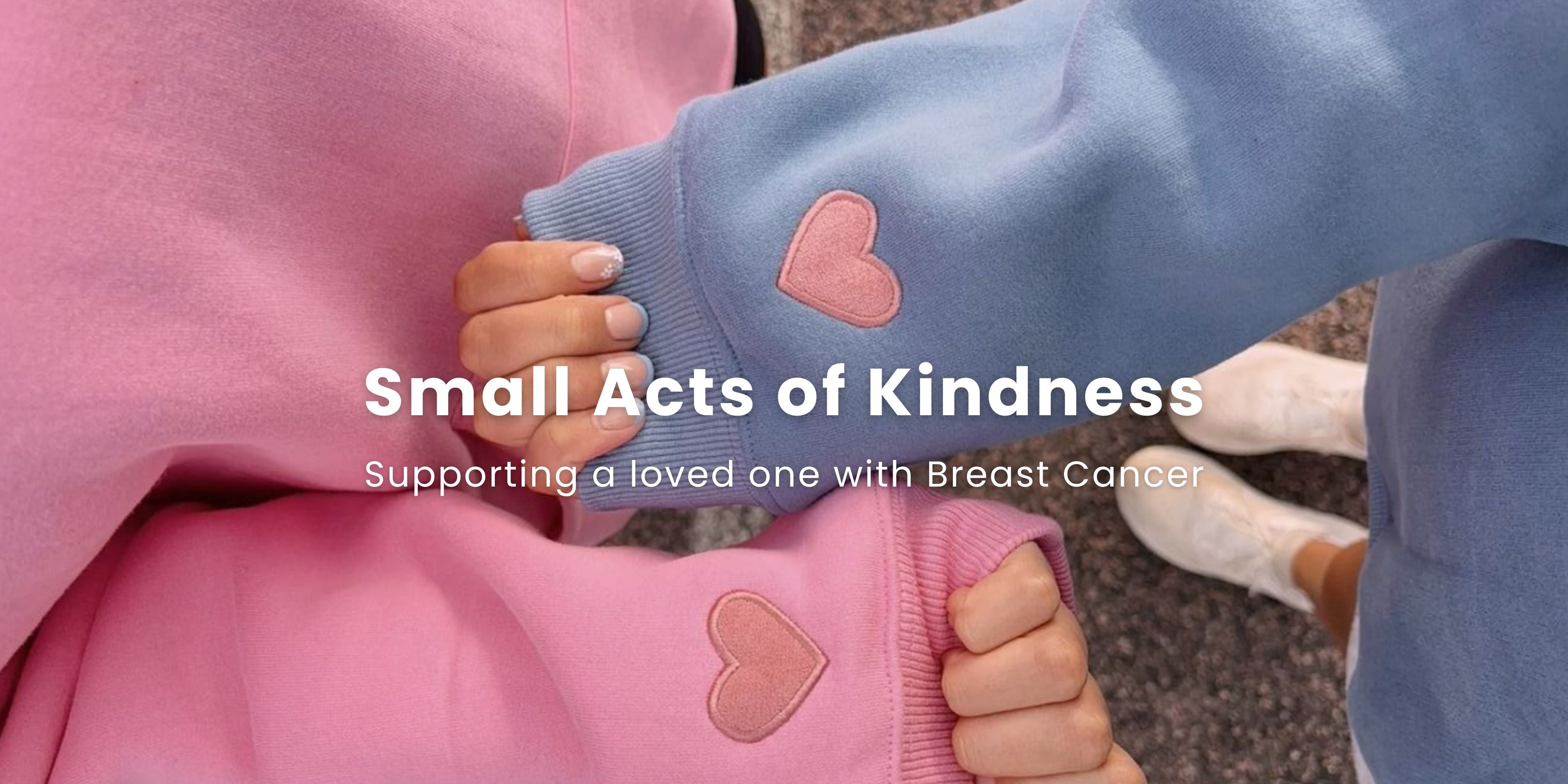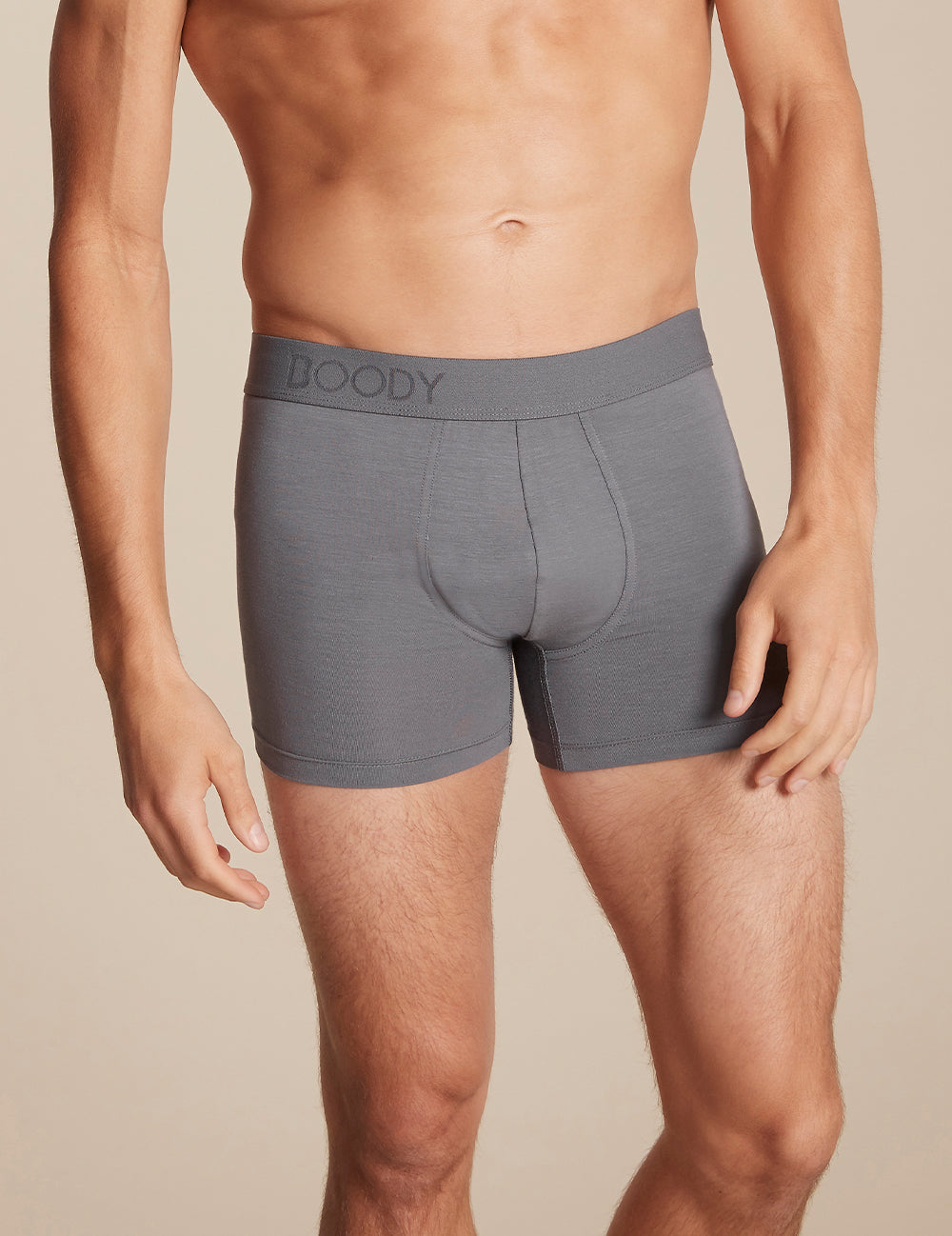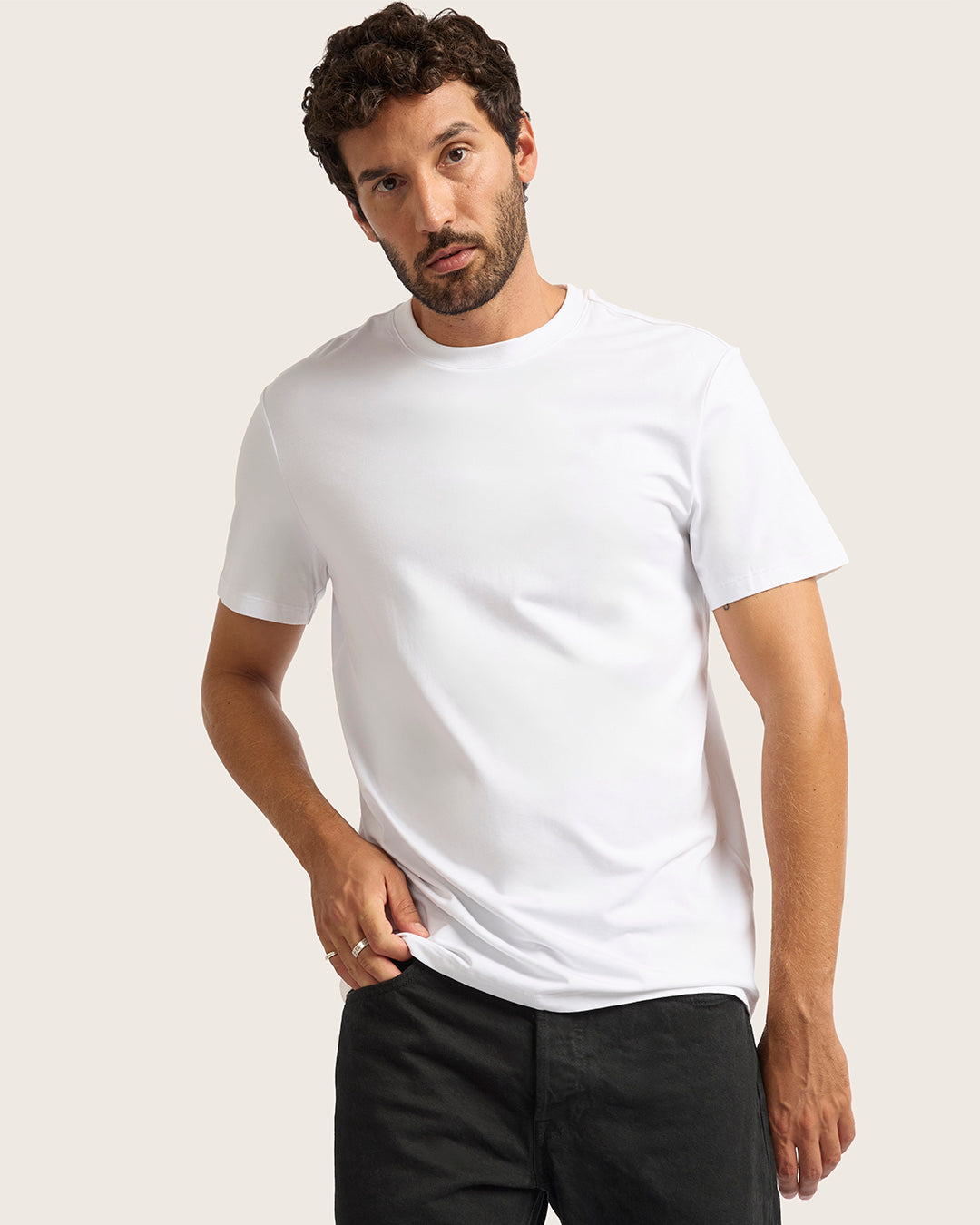If you consider yourself a bonafide tree hugger, you probably try to make good choices when shopping for new clothing, including buying from B Corporations and investing in long-lasting, naturally derived clothing.
But when you’re ready to do some shopping, you might wonder if your organic cotton clothes are actually doing good for the environment.
Long story short? Organic does not necessarily mean sustainable—but when compared to conventional cotton, organic cotton can be much better for the earth, our environment, and us. Don’t worry if the whirlwind of eco-friendly advertising in the clothing industry has got you turned around. Read on as we clear the air about the sustainability of organic cotton fabric.
What is organic cotton?
Let’s start with a few basic definitions. First up: organic and cotton.
Conventional cotton is an agricultural product grown throughout the world. It’s a woody-stemmed, low, bushy plant that grows in warm-weather climates and produces a daisy-like flower followed by a fibrous seed pod called a boll. The boll is harvested, then becomes fabric through the complicated and multi-step processes of spinning and weaving.
Organic is a term that is strictly defined and regulated. The definition of organic means the crop is grown without the use of:
- Genetically modified organisms (GMOs)
- Synthetic pesticides or fertilizers
- Sewage
- Synthetic fertilizers
- Bioengineering
- Ionizing radiation
Furthermore, the crop must maintain these standards for three years prior to certification. The process of becoming certified as organic requires that organic farmers and handlers document their cotton production processes and get inspected every year. The inspections take in every aspect of the organic cotton farming practice, including:
- Seed sources
- Soil fertility and conditions
- Crop health
- Weed and pest management
- Water systems
- Contamination risks and prevention
- Record-keeping

So, putting that together, organic cotton (in a nutshell) is grown using only non-GMO seeds, pesticides, and fertilizers with no synthetic chemicals, and earth-friendly practices. We’re all trying to do our part for Earth's health, so this makes organic cotton seem like an easy lifestyle choice.
But when it comes to ensuring your organic cotton clothing is also sustainable, there are a few more factors at play.
What does sustainability mean for organic cotton?
Now that we’ve gotten to the bottom of what cotton and organic mean, let’s do the same for sustainability. Is there organic, sustainable cotton? And what does it mean for a garment to be truly sustainable?
While definitions might vary based on your perspective, we like the definition from McGill University’s Climate & Sustainability plan. Sustainable means “meeting our own needs without compromising the ability of future generations to meet their own needs.”
Theoretically, regular cotton can be viewed as sustainable because it comes from a plant that can be replanted and harvested year after year (unlike, say, a redwood tree which takes many years to mature). It isn’t a finite resource like fossil fuel or a slow-growing resource like hardwood.
But the idea of sustainability takes in more than the lifespan of the plant itself. In our opinion, sustainability also includes:
- Wise resource management – Sustainability requires leaving resources for future generations. Where traditional cotton is concerned, water is one of the most impacted resources, both in terms of usage and pollution. While the production of organic cotton can still be fairly water-intensive, studies suggest it can benefit our water resources by reducing the chemicals and toxins released into our waterways.
- Supporting social equity – Many argue that true sustainability also entails caring for our fellow humans. While there have been issues with unethical cotton farming and cotton production (yes, even the organic kind) there are movements like the Better Cotton Initiative shaking up the traditional cotton industry. This organization’s mission is to help cotton communities survive and thrive while protecting and restoring the environment.

How to shop for sustainable cotton clothing
With fewer pesticides and toxic chemicals, organic cotton can be a better option for Mother Earth. But to ensure your cotton clothing is also sustainable, you need to look beyond simple labels to find the truth behind your clothing.
As you seek sustainable brands, look for options that are transparent about their sustainable practices and methods of production. These may include:
- A focus on reduced water consumption, less energy usage, and conservation
- Production practices that minimize waste
- A commitment to ethical production and healthy working environments
While labels like “recycled cotton” and “sustainable cotton” might catch our earth-loving eyes, it’s important to dig a little deeper into the specific labels and practices a company uses. The more transparent they are about how they work towards sustainability, the more confident you can be that you’ve made a green choice.

Boody Eco Wear’s soft, sustainable bamboo basics
At Boody, our mission has always been to bring you genuinely comfortable and exceedingly well-crafted sustainable fashion. For us, that means providing full transparency about our production methods and sources, also known as the Boody Code of Conduct. Whether you’re looking for organic cotton clothing or other sustainable choices like viscose, we approach every part of our process with sustainability in mind.
Is viscose good material? Our practices actually improve air quality and promote soil health. Now that’s clothing you can feel good about. Explore the bamboo benefits today, with Boody.
From our sleepwear to our loungewear, men’s bamboo shirts to our underwear, to our line of adorable Boody Baby clothes, every item of Boody clothing will have you looking amazing and feeling virtuous about your role in protecting the earth. Shop today for your best new sustainable looks.
Sources:
Toyota Industries. From Raw Cotton to Cotton Fabric. https://www.toyota-industries.com/products/textile/process/
McGill University. What Is Sustainability? https://www.mcgill.ca/sustainability/files/sustainability/what-is-sustainability.pdf
Fashion Revolution. The Role of Cotton in Social and Economic Development. https://www.fashionrevolution.org/the-role-of-cotton-in-social-and-economic-development/
Renewable Agriculture and Food Systems. Organic cotton production may alleviate the environmental impacts of intensive conventional cotton production. https://www.cambridge.org/core/journals/renewable-agriculture-and-food-systems/article/organic-cotton-production-may-alleviate-the-environmental-impacts-of-intensive-conventional-cotton-production/011DB7C5487BB768DE953A8BBDE658E2
Better Cotton. Defining 'Better': Our Principles & Criteria https://bettercotton.org/what-we-do/defining-better-our-standard/
Author: Daisy Hemmen
You may also like

When a loved one is diagnosed with breast cancer, it can be hard to know what to do or say. You want to help, but the journey is so personal that it’s natural to feel unsure. The truth is support d...

October is Breast Cancer Awareness Month When you think about breast cancer recovery, what comes to mind first? For many, it’s the treatments, the check-ups, or the support of loved ones. But...

Whether you’re buying your first or five-hundredth bra, finding the right size can be a pain. Too tight, and you’ll face itchy straps and poking wires. Too loose, and you’ll have zero support and f...







Leave a comment
All comments are moderated before being published.
This site is protected by hCaptcha and the hCaptcha Privacy Policy and Terms of Service apply.